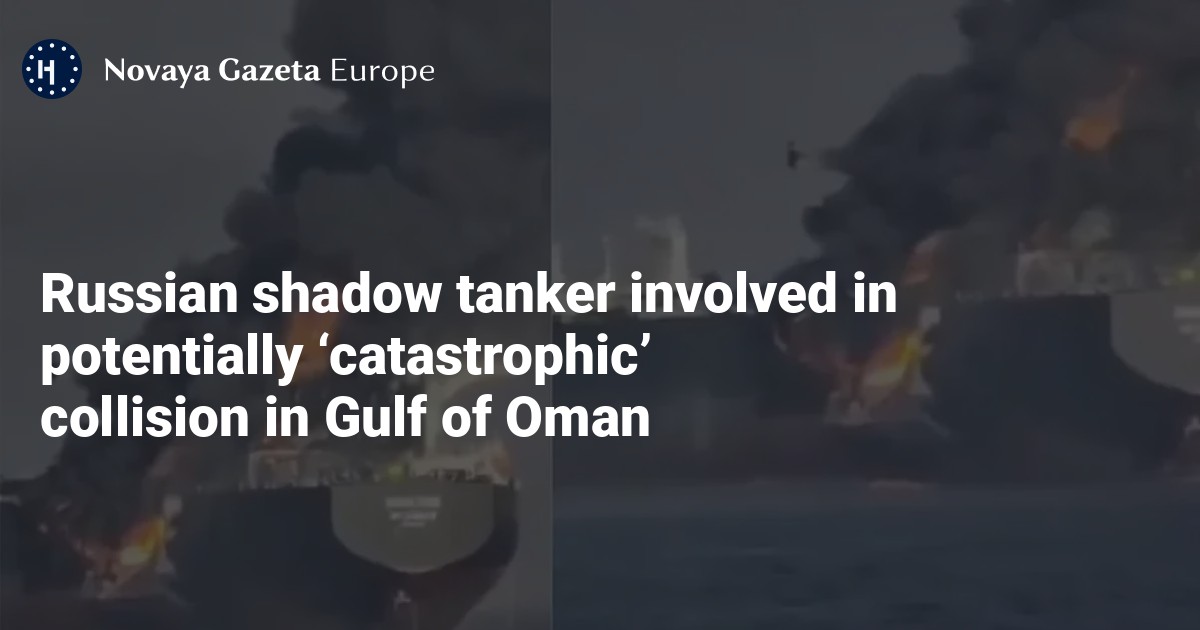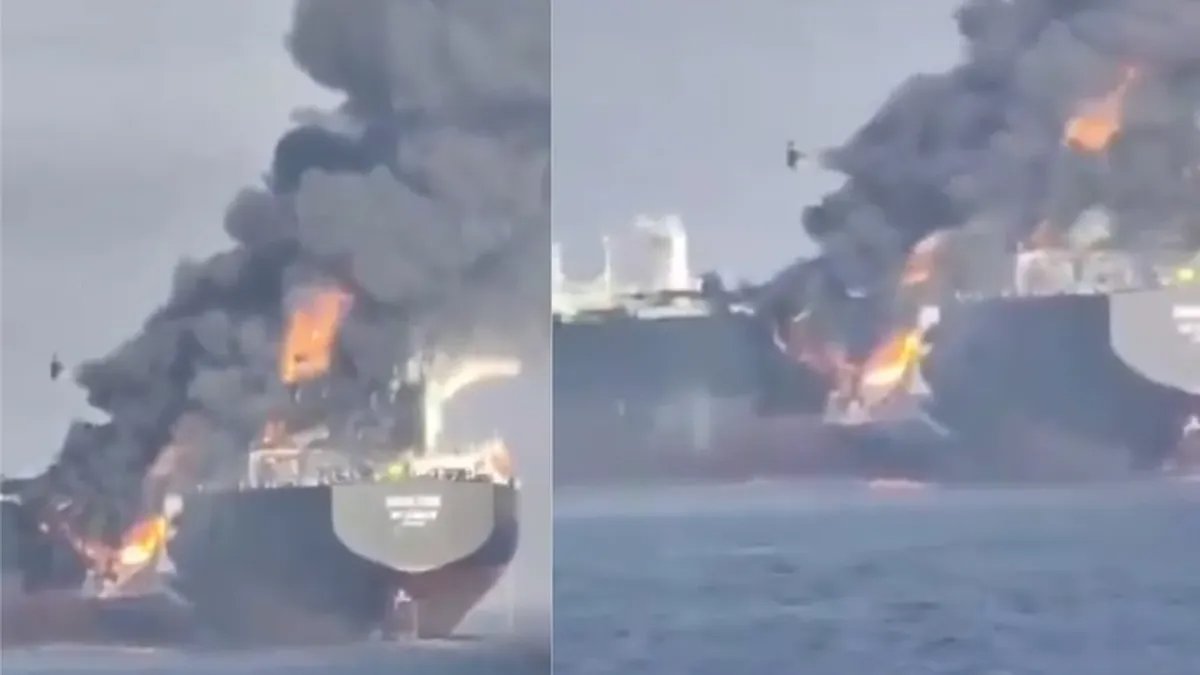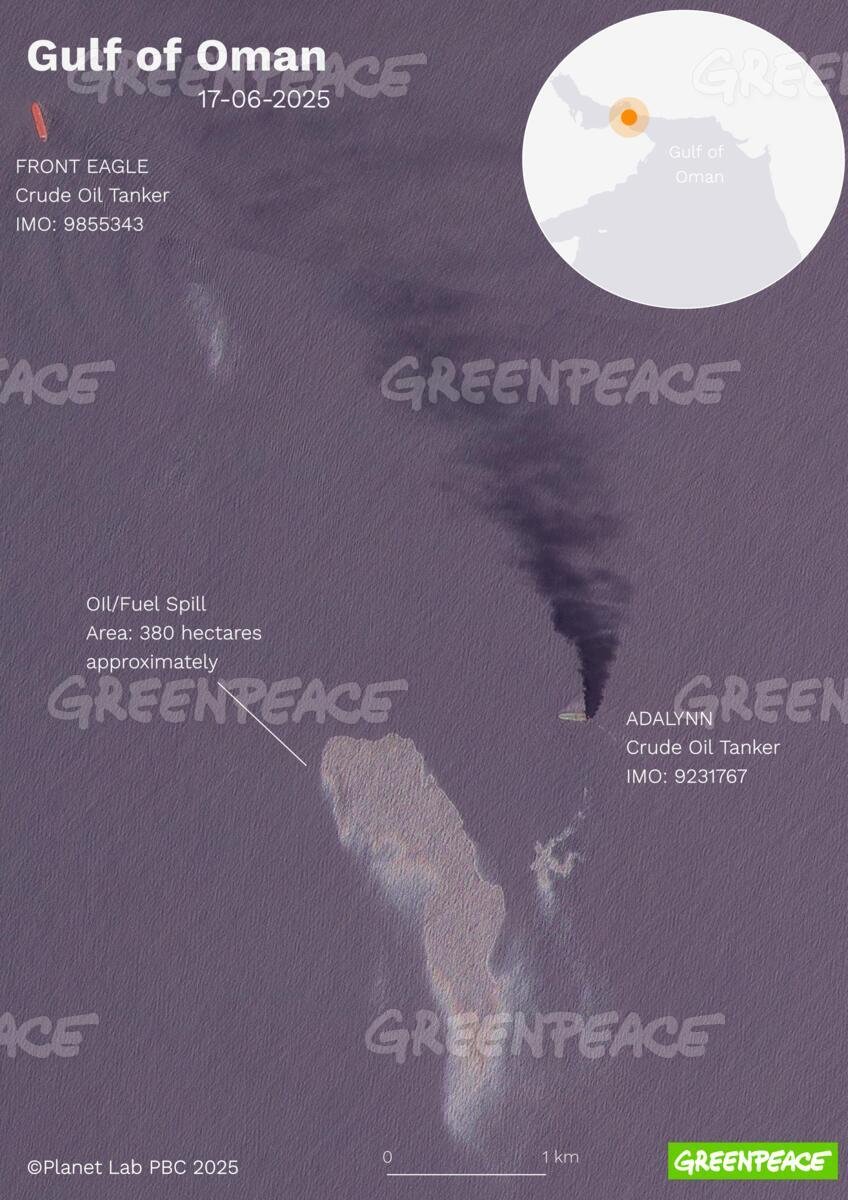




Screenshot from a video showing the tanker Adalynn ablaze in the Gulf of Oman. Black Sea Strategy Institute / Telegram
Greenpeace has warned of a potential regional “environmental disaster” after two oil tankers, one of which belongs to the Russian shadow fleet, collided in the Gulf of Oman on Tuesday, leading to an oil spill.
The collision between oil tankers Adalynn and Front Eagle, which occurred off the coasts of the UAE and Iran near midnight on Tuesday, caused a fire to break out on the 23-year-old Adalynn, which has subsequently leaked oil at a quick rate.

Photo: Greenpeace
Greenpeace has included the Adalynn in its Shadow Fleet database, which helps track the ownership of vessels helping Russia circumvent the Western-backed price cap initiative on Russian oil. Ukraine’s military intelligence also believes it is a shadow vessel, independent investigative outlet The Insider reported on Wednesday.
Citing satellite photos captured one day apart, Greenpeace noted on Wednesday that the oil spill resulting from the collision had grown to cover an area of approximately 1,500 hectares, a fourfold increase in only 24 hours. Despite officially reporting no cargo, Greenpeace believes that the Adalynn may be carrying approximately 70,000 tons of crude oil.
On Wednesday, Lars Barstad, CEO of the Frontline shipping company which operates the Front Eagle, described the collision as a “nightmare” scenario, due to the impossibility of establishing contact with the shadow vessel after the incident, as is typical practice.
“You have a three football field long tanker fully laden with crude oil sailing at 13 knots and then all of a sudden you end up in a collision with a vessel that you don’t know who owns it, you don’t know who manages it, and you don’t know who insures it,” he said.
The UAE’s energy ministry indicated on Wednesday that it believes the collision was caused by “navigational misjudgement” by one of the vessels.
Since Iran and Israel began hostilities last week, vessels sailing near the coast of Iran have reported persistent electronic interference, with vessels’ ability to transmit navigational data via the Automated Identification System (AIS) severely disrupted.
Russia’s shadow fleet has been repeatedly criticised for engaging in maritime behaviour contrary to international rules and norms of the sea. Shadow tankers frequently manipulate locational data to avoid detection, heightening the chances of maritime accidents.
